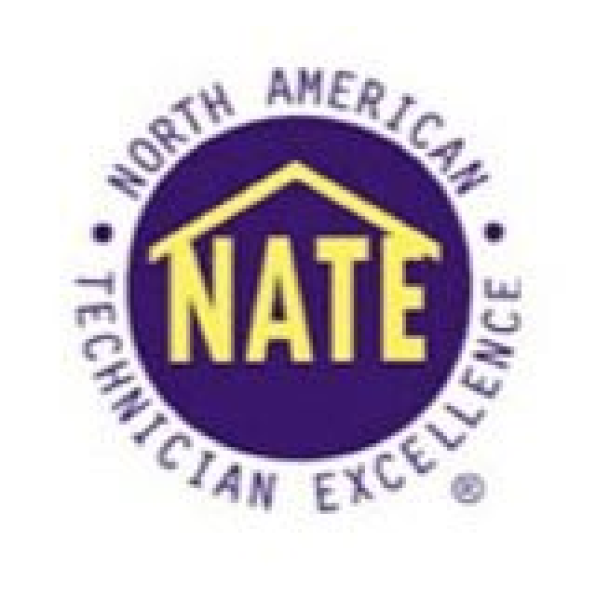Services
- Residential HVAC Services
- Commercial AC Installations and Replacements
- Refrigerated Air Installations and Conversions in El Paso
AC Services
The air conditioner is an indispensable component of your home, especially during those El Paso summers that reach above 100 degrees Fahrenheit.
Mechanical Technologies offers an array of Air Conditioning Services for your home or commercial property. Here is an overview of what we offer:
- Air conditioner repair
- Air conditioner maintenance
- AC installations
- Commercial AC installations
- Residential/Commercial AC Replacement
- Refrigerated air conversions
- Evaporative cooling systems repair
- New AC units for sale
Heating Services
While El Paso is not known for record-breaking ice storms or winters, we still see below freezing temperatures and some single-digit days. Your heater plays a major role in your family’s health and comfort during these colder months. Below are our main heating services:
- Furnace repair
- Heater and furnace maintenance
- Replacement of parts
- Heating installation
- Heater replacement
- Heating system inspection
- Water heater replacement
- Water heater repair
Preventative Maintenance
You don’t drive your vehicle for thousands of miles without changing the oil or inspecting the engine or checking the tire pressure. The same concept applies to your HVAC system. It’s quite likely that your system is running year round. When it’s not your heater, it’s your AC unit and just like anything with moving and working components, it requires maintenance, check-ups, and servicing in order to avoid malfunction. Having your AC breakdown in the middle of the summer is more than just a nuisance. It can pose health risks to you and your family. Here is a quick breakdown of our maintenance plans:
For refrigeration systems: This contract includes three visits a year by one of our HVAC technicians. There is one visit to prepare your system for summer, another to prepare it for winter, and one for regular maintenance to clean coils, change filters, and ensure every part is functioning properly.
For evaporative cooling systems: This contract includes two visits a year from one of our HVAC technicians. One visit will be to winterize the system and another to summarize it.
For tankless water heater: This contract includes two visits a year. One is to flush out the tank and another for descaling, cleaning burners, components, and ensuring proper function of all parts.
The Importance of Your Air Quality
What do we mean when we say air quality? It’s pretty obvious, right? The truth is, however, that not many people think about this on a daily basis even though it affects—literally—every breath we take. After all, one of the important letters in the HVAC acronym stands for ventilation. This is because ensuring proper ventilation in your home will keep the air quality in your home safe and healthy. It is crucial that your system is constantly removing polluted air and reintroducing fresh air. Pollutants near the home can cause buildup mold, bacteria, and pollen. This is why performing regular maintenance to your HVAC system will improve air quality by ensuring filters and all components are in good shape and functioning properly.
The Role of Insulation and Your Air Duct System
Insulation can play a role in your energy efficiency ratings and in the regulation of your home’s temperature. Whether you have enough insulation or quality insulation, it will make a big difference in your home’s ability to retain the cold air in the summer and the warm air in the winter.
One of the most important systems in your home is your air duct system. This is the network of tubes in your walls, floors, and ceilings, and it’s what carries the cold or hot air from your system to your vents and into each room of your home. Your air duct system can also be insulated to increase efficiency or might need an upgrade in its insulation. Keeping your air duct system clean and free of debris is helpful in the overall efficiency of your HVAC system.
Stay Cool with Our Residential HVAC Services
Whether you have an evaporative cooling system, a refrigerated air system, or on the verge of conversion, we can help! From repairs to replacements, installations — we’ve got you covered. Call the El Paso HVAC professionals at 915-544-1550.
There comes a time in every HVAC system’s life, where it simply cannot go another mile. Perhaps it has given your business years of service, or maybe it just can’t keep up with modern day demands. Whatever the reason may be, replacing and installing a new AC system is a big decision. Any business owner knows that any new (and large) expense needs to be a good investment for the company. There is no better investment than the air you breathe. AC replacement and installation requires the knowledge of trained professionals who know the best way to adapt your infrastructure and space into the kind of system you need and want.
New Commercial AC Installations
Installing a new AC system depends on your current situation. Every circumstance is different because of square footage, spatial arrangement, existing infrastructure, and the desired type of system. For example, a 10,000 square foot single story office space will have different HVAC needs from a two-story 20,000 square foot office building. Similarly, a 10,000 square foot office building built in 1945 looking to convert to refrigerated air and a similar sized modern office building wanting to convert, might also require different services. So what does your space look like? Does it have high ceilings? Is it an open plan office space?
With Mechanical Technologies, you can rest assured that we will install the system or systems that make sense for you and your specific circumstances.
We offer only the best and trusted brand name in the industry – Carrier.
Commercial AC Repairs
When something goes wrong with your commercial AC, your business may be in big trouble. Customers, clients, and employees will immediately feel the consequences. It will start affecting the way your employees work or how efficiently they can do their jobs, which will then affect the quality of your product, service, or customer service. This might ultimately affect your client relations and even sales and profit.
Mechanical Technologies offers AC repairs on every brand and type of system available. Whether you have a brand new system or an older model, our expert technicians will find the source of your trouble and get your system back up and running.
If you notice any of the following, you might be needing a repair soon:
- AC system not turning on
- Air Conditioner not cooling sufficiently
- Air Conditioner not cooling evenly
- Strange noise coming from your system
- Thermostat malfunctioning
AC Maintenance for Commercial Systems
In order to avoid inconvenient and untimely malfunctions, arm your HVAC system with proper care and maintenance. The best way to protect your system is to have at least one annual visit by a certified tech to assess the health of your AC. Having your filter replaced on a regular basis, for example, will keep the air clean and prevent clogs.
Sign up for one of our maintenance contracts and have timely service performed on your HVAC system year round. We’ll give you a call when it’s time to get your maintenance done and one of our technicians will set up an appointment.
Why A Good AC System Matters For Your Business
There are many reasons why your company’s HVAC system is important for your business. It goes beyond an inconvenience. It’s more than just a brief moment of discomfort. A bad air conditioner can affect productivity, employee health, customer relations, sales, profit, and customer impressions. All of this takes a toll when your AC isn’t working.
Call Mechanical Technologies Today
Time is money, as the saying goes. You can’t slow down because your AC system decides to break down. And for your business, time without a working AC can be costing you in profits and much more. The solution is to have professionals do the work for you. Call Mechanical Technologies at 915-544-1550.
Today, millions of Americans enjoy cool environments in the summers through refrigeration systems while saving the big bucks on energy.
With its 100+ degrees summers, El Paso sees extreme temperatures that an old fashioned evaporative cooling system will struggle to mitigate. A new AC unit possesses greater power than any older evaporative system or swamp cooler showing any wear and tear.
Older Units Vs. New Units
Your home might have an older evaporative cooling system that is already struggling. As a homeowner, you are faced with two choices: either replace the system or repair the old one and hope it gives you a few more years. This, however, can produce any number of complications for you in the near and immediate future. Getting a new air conditioner unit is a smarter choice in the long term. Older systems tend to break down more often, require more maintenance, have older components, make a lot more noise, occupy more space, and use a lot more energy.
Both new evaporative cooling systems and new refrigeration installations utilize modern components and technology that make for more efficient systems.
Benefits of getting a new unit include:
- Energy efficiency
- Less maintenance
- Longevity
- Lower the temperature much more effectively
Evaporative Units Vs. Refrigerated Air
This is a long fought debate. An evaporative cooling system uses evaporation as its main way of cooling the air. A typical window unit, for example, will take the warm air from the outside and cool it with water circulating it inside your building. This means the AC unit depends largely on outside weather, humidity levels, and more. If your home has a traditional swamp cooler and it’s on its last legs, replacing it with a brand new unit might be the way to go and converting to refrigerated air might be the best option.
Refrigerated air will use a similar process but will use a refrigerant that flows through a closed system or refrigeration lines between the inside and outside units. The refrigerant is pumped through the exterior compression coils, it absorbs the heat from the air, and the cooled air is then pushed through the air ducts.
How Conversion Will Make the Summers a Breeze
Converting to a refrigerated air system might just be one of the best decisions you ever make! It can save you plenty of headaches in the hot summer months. The conversion itself does not have to be that complicated and most of the time, the existing infrastructure will work just fine with refrigeration. One of our technicians can advise you on how best to convert your system and home to a refrigeration system.
Choosing a Unit That is Right For You
Here at Mechanical Technologies, we carry the best brands in both evaporative cooling and refrigeration systems. So when you need a new system or it’s time to replace your current equipment, you can trust you’re working with the best in the business – Carrier. One of our technicians can directly advise you as to what unit might be the best fit. When you’re thinking of converting to refrigeration, an inspection of your current infrastructure and duct system might be necessary to ensure there are adequate duct systems for the necessary flow of air.
The Benefits of Converting to Refrigeration
In addition to the fact that it simply cools more effectively in extremely hot or humid days, there are several other benefits to note:
- Reduces pollutants in the air. These systems work to remove a variety of pollutants that can be brought on by dust, mold, cooking and cleaning products, paint, stripping, etc.
- Helps reduce allergies. As it reduces pollen and other pollutants from the air, it helps people with allergies have an easier time breathing.
- Improved air quality. The air itself becomes cleaner, which is good for both your short-term and long-term health.
- Improved energy efficiency. A refrigerated air system will help people reduce their electric bill.
Why Is Mechanical Technologies the Right HVAC Company for You?
Not only do we have decades of experience working with HVAC systems in the El Paso area, but we continue to train and certify our technicians on cutting-edge technology. All of our techs are EPA certified refrigeration technicians. Our team is friendly, fast, and effective.
Don’t let the heat catch you off guard. Call us for your HVAC needs or air conditioning replacement services.
Show the Heat Who’s Boss by Contacting Mechanical Technologies Today
The heat in El Paso is a loyal visitor. It shows up every year, some years stronger than others. While there is not much to be done with the heat outside, you can beat it in your own home with a new and improved AC unit, evaporative cooler, or refrigerated air system. Call us today at 915-544-1550.
Need Service Now?
Book Your Visit Today
Areas we serve
We serve residential and commercial businesses in El Paso and the surrounding areas including Horizon City and Sunland Park.

Residential
If you’re having trouble with your HVAC unit at home or at the office, we are fully equipped and certified to service residential units and commercial units.

Emergency
Our technicians are available 24/7 for emergency services.

Commercial
We offers maintenance contracts to ensure you don’t forget to provide your systems with the necessary maintenance and servicing.





